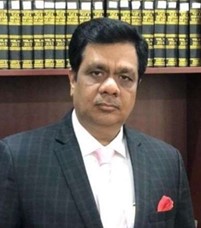The Hon’ble High Court of Karnataka, in the matter of BANGALORE ELECTRICAL SUPPLY COMPANY LIMITED (BESCOM) VERSUS THE ASSISTANT COMMISSIONER OF CENTRAL TAX NORTH DIVISION -1 BENGALURU, THE ASSISTANT DIRECTOR OF DGGI DIRECTORATE GENERAL OF GST INTELLIGENCE MANGALURU [2024 (10) TMI 271 - KARNATAKA HIGH COURT] while relying on the judgement of Hon’ble High Court of Karnataka, in M/S. ZYETA INTERIORS PVT. LTD. SHRI. AMIT PRAKASH, DIRECTOR OF M/S. ZYETA INTERIORS PVT. LTD, VERSUS THE VICE CHAIRMAN SETTLEMENT COMMISSION, CHENNAI, THE PRINCIPAL COMMISIONER OF GST AND CENTRAL EXCISE, BANGALORE [2021 (10) TMI 233 - KARNATAKA HIGH COURT] has relied upon the established principle that where tax has in its entirety reached the hands of revenue, even if there was no strict compliance with the specified payment ratio between the recipient and the service provider in the service tax regime, the recipient cannot be held responsible for double taxation.
In the present case, the petitioner was issued a notice for GST liability under RCM on the Security services received by the petitioner.
The petitioner placed its reliance upon the judgement of M/s. Zyeta Interiors (supra) wherein the petition was partially allowed, and the matter was sent back to the Settlement Commission for a fresh review in accordance with the law, with notice to the stakeholders.
The relevant extract of the said judgment is reproduced below: -
“9. As regards the issue of double taxation, we find no exception. Whatever the ratio, the tax in its entirety has reached the hands of the ex-chequer. Merely for the reason that there was no strict adherence to the ratio as envisaged during the relevant point of time for payment of tax insofar as the assessee and the service provider, the assessee cannot be made liable to pay the double tax. What is significant to note is that the discharge of entire tax amount is not disputed. Thus, the reverse charge mechanism would not lead to double taxation. We find no grounds to interfere with this finding of the learned Single Judge. Moreover, the CBEC Circular No.341/18/2004-TRU [Pt.], dated 17.12.2004 also supports the case of the assessee in this regard.”
The hon’ble High Court, in the present case, allowed the petition and reiterated that if the entire tax amount is undisputedly paid and the reverse charge mechanism would cause double taxation, the petitioner cannot be made liable for double taxation.
There is a vital principle in our taxation laws that the taxpayers should not bear the burden of double taxation if the total tax liability has been fulfilled, regardless of strict compliance with fluctuating payment ratios. This principle not only protects taxpayers from undue penalties but also reinforces the importance of fairness and clarity in tax regulations.
Accordingly, in cases where recipient was liable for payment of tax on supply under reverse charge mechanism, but the supplier has paid due taxes on said supply and revenue has received such taxes, the recipient cannot be held liable for payment of the tax, which would naturally amount to double taxation on one supply.
 TaxTMI
TaxTMI  TaxTMI
TaxTMI 